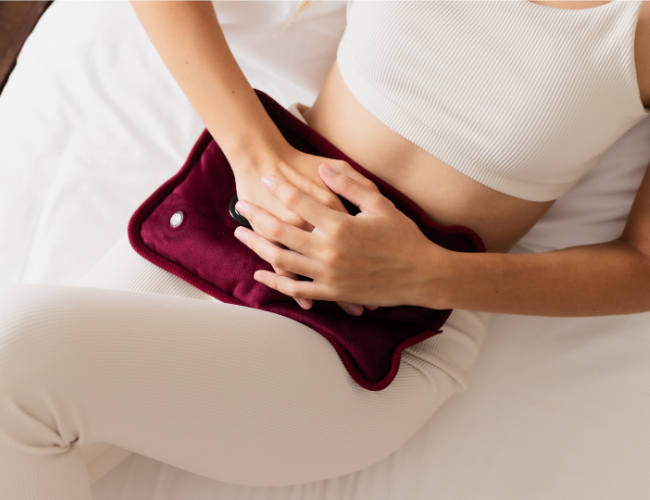As women, we understand the importance of maintaining a healthy lifestyle to ensure our overall well-being. One aspect of this is a healthy menstrual cycle.
It’s common to experience variations in your period, but it’s important to know when to seek medical attention. In this article, we’ll explore the various reasons why your period may start and stop, including stress, weight loss, exercise, breastfeeding, birth control methods, underlying health conditions, and pregnancy.
For starters, there’s a range of normal when it comes to periods, and even something that’s kind of jarring, like having your period stopping and starting, can fall into that category. “It’s absolutely normal for someone’s period to stop and start occasionally,” says Meleen Chuang, MD, interim chief of service of ob-gyn at NYU Langone-Hospital Brooklyn.
One study found that so-called menstrual irregularities (which include your period starting and stopping) happen in an estimated 14 percent to 25 percent of women of childbearing age. “Generally, normal periods occur anywhere from every 21 to 35 days and last three to seven days,” says Alexa Sassin, MD, assistant professor in the Department of Obstetrics & Gynecology at Baylor College of Medicine/Texas Children’s.
Why Does Your Period Start and Stop?

It’s common to experience variations in your period, including starting and stopping. While this can be unsettling, it’s important to understand that there’s a range of normal when it comes to periods, and even something outside the norm can fall into that category.
Stress
Stress can significantly impact our menstrual cycle, leading to irregular periods, missed periods, or periods that start and stop. Relaxation techniques such as meditation, yoga, or deep breathing can help manage stress levels and improve your menstrual cycle.
Weight Loss
Significant weight loss, especially in a short period, can also impact your menstrual cycle. Losing too much weight can lead to irregular periods, missed periods, or periods that start and stop.
Maintaining a healthy weight through a balanced diet and regular exercise is crucial to ensuring a regular menstrual cycle.
Higher Levels of Exercise
High-intensity exercise or over-training can lead to menstrual irregularities, including periods that start and stop. Finding a balance in your exercise routine is essential to maintaining a healthy menstrual cycle.
Irregular periods are more common in athletes and other people who regularly train hard, according to the US Office on Women’s Health
Breastfeeding
Breastfeeding can also impact your menstrual cycle, delaying or even stopping it altogether. This is because breastfeeding suppresses ovulation, which leads to a lack of menstruation.
This can be normal for many women but consulting with a healthcare provider is recommended.
Some Birth-Control Methods
Certain birth control methods may cause menstrual irregularities, including periods that start and stop. It’s essential to discuss the potential side effects of any birth control method with your healthcare provider.
Some Underlying Health Conditions
Underlying health conditions such as polycystic ovary syndrome (PCOS), thyroid disorders, or uterine fibroids can contribute to menstrual irregularities, including starting and stopping. Consulting with a healthcare provider is essential to identify any underlying health conditions.
Pregnancy

Finally, pregnancy can also cause periods to start and stop. During early pregnancy, some women may experience light bleeding or spotting that is often mistaken as their period. It’s important to consult with a healthcare provider if you suspect you may be pregnant.
Bleeding in the first trimester happens in up to 25 percent of pregnancies, and light bleeding or spotting can happen one to two weeks after the fertilized egg implants in the lining of the uterus, the American College of Obstetricians and Gynecologists (ACOG) says.
When to See a Doctor If Your Period Starts and Stops?
It’s essential to monitor your menstrual cycle and seek medical attention if you notice any significant changes, including periods that start and stop regularly.
Additionally, if you experience any other symptoms such as severe pain or heavy bleeding, it’s important to seek medical attention promptly.
In conclusion, a healthy lifestyle is essential to maintaining a regular menstrual cycle. While it’s normal to experience variations in your period, understanding the various factors that can impact it is crucial to identifying when something isn’t quite right.
By prioritizing our health and seeking medical attention when necessary, we can ensure our overall well-being and maintain a healthy menstrual cycle.
“While occasional irregularities are normal, persistent irregular periods may be a sign of an underlying issue that should be addressed,” Dr. Chuang says. “A doctor can help determine the cause and provide appropriate guidance and treatment if necessary.”
Healthy Living
Maintaining a healthy lifestyle is crucial to ensuring a regular menstrual cycle. A balanced diet, regular exercise, and stress management can all contribute to a healthy menstrual cycle. Additionally, getting enough sleep and avoiding smoking and excessive alcohol consumption are essential to our overall health.
Fitness

Regular exercise can be beneficial for our menstrual cycle as it helps regulate hormones and reduce stress levels. However, excessive exercise or over-training can have the opposite effect and lead to menstrual irregularities, including periods that start and stop. Finding a balance in your exercise routine is key to maintaining a healthy menstrual cycle.
Health Explainers
Understanding how our bodies work is crucial to maintaining our health. Familiarizing ourselves with the menstrual cycle and the various factors that can impact it can help us identify when something isn’t quite right. Normal periods occur anywhere from every 21 to 35 days and last three to seven days.


